Postdoc Perspectives & Picnic
The MaP Postdoc Perspectives & Picnic are a series of events tailored for postdoctoral researchers and senior scientists in MaP research groups. Topics include for example grant writing, career-planning, or team-leading advice. Join to meet your peers, get insights from MaP faculty, and enjoy a delicious sandwich!
Subscribe to our MaP postdocs mailing list here
(for postdocs & senior scientists in MaP member groups)
How to start your own lab. Science, funding, people.

This one-day workshop aims to show you all the tools you need to start your own academic research group. It is highly interactive and mostly based on discussions and interactive exercises.
Friday, 20 March 2026 | 08.15-16.45 | ETH Zentrum
external page Apply for a spot in the workshop (limited; postdocs and senior scientists from MaP member groups only)
Topics
The workshop includes the following topics:
- How to master the faculty interview
- How to select your co-workers
- How to lead your team
- How to secure funding
- How to communicate your research
- How to manage your projects
Your trainer

Prof. Dr. Max von Delius is a W3 Professor for Organic Chemistry at the University of Ulm. He has been leading his own group successfully since 2013. He received funding from the Emmy-Noether programme of the DFG as well as an ERC starting grant. His research interests encompass the synthesis of functional organic materials and the investigation of complex chemical networks. As young professor (born 1982), he´s aware of all the challenges that young group leaders in the natural sciences face and addresses these in an interactive setting.
Topics in the pipeline:
- (September 2026) Grant Proposal Writing: Advice from MaP Professors
- How to Recruit and Select the Right Team Members
- Path to Professorship - MaP Professors Share Tips for Success
Would you like to suggest a topic for one of the following postdoc workshops? Or do you need interdisciplinary input on a research problem that you’d like to present to fellow postdocs? !
Past events
Path to Professorship – MaP Professors Share Tips for Success
On 24 November 2025, the ETH Zurich Competence Center for Materials and Processes (MaP) hosted the Postdoc Perspectives and Picnic: Path to Professorship at ETH Hönggerberg. Three MaP professors, Elsa Abreu (D-PHYS), Mark Tibbitt (D-MAVT) and Laura Bégon-Lours (D-ITET), shared their career journeys, lessons learned, and advice for postdocs considering an academic path.
Elsa Abreu described a career that has taken her through France, Portugal, Sweden, the United States to ETH Zürich in Switzerland. She emphasised the importance of choosing advisors wisely, noting that during her PhD she prioritised personal and scientific compatibility over reputation alone. Elsa encouraged postdocs to actively seek mentoring, whether formal or informal, and highlighted the value of learning from unsuccessful applications. She also stressed focusing on low-hanging fruit, publishing efficiently and delegating early in one’s career.
Mark Tibbitt shared his non-linear and opportunity-driven path across disciplines and continents, ranging from mathematical simulations to marine biology to chemical and process engineering at MIT and ETH Zurich. He highlighted the importance of embracing failure, following one’s scientific curiosity, and cultivating a broad team of mentors. Mark also invited participants to reflect intentionally on the lab culture they want to join or create, while remaining open to new opportunities.
Laura Bégon-Lours explained that while a pitch presents a top-down narrative, a career grows from bottom-up expertise. With a background in physics and chemical engineering, a Marie Curie Fellowship and now an SNSF Starting Grant, she encouraged postdocs to apply boldly and seek honest mentors who challenge and strengthen their proposals. Laura shared practical networking strategies, the power of deadlines for efficiency and the importance of identifying where one is a pioneer. Her key messages were to present research through the challenges it solves, communicate genuine enthusiasm and make full use of ETH Zurich’s exceptional environment.
A warm thank you to Elsa, Mark and Laura for their openness and valuable insights, and to all postdocs who joined. The event concluded with sandwiches, coffee and lively networking among participants.

Elsa Abreu, Quantum Materials Dynamics (D-PHYS)
Elsa Abreu is an Assistant Professor at the Institute for Quantum Electronics, where she explores how ultrafast laser pulses can control the behaviour of complex materials. Her work focuses on systems such as multiferroics, Mott insulators and spin-ladder compounds, supported by major grants from the Swiss National Science Foundation. She earned her PhD in Physics from Boston University in 2014 and has since built her career in Switzerland as a researcher and group leader.

Mark Tibbitt, Macromolecular Engineering (D-MAVT)
Mark Tibbitt is an Associate Professor in the Department of Mechanical and Process Engineering at ETH Zurich, where he leads the Macromolecular Engineering Laboratory. His research combines engineering, chemistry, materials science and biology to design responsive soft biomaterials for applications ranging from drug delivery to regenerative medicine. He studied at Northwestern University and the University of Colorado Boulder, completed postdoctoral research at MIT, and joined ETH Zurich in 2017.

Laura Bégon-Lours, Neuromorphic Electronics with Oxides (D-ITET)
Laura Bégon-Lours is an Assistant Professor of Neuromorphic Electronics with Oxides in the Department of Information Technology and Electrical Engineering at ETH Zurich. Her research focuses on developing nanoscale components that mimic synapses, with the aim of creating bio-inspired chips that operate like the human brain. She has been recognised with a Marie Curie Fellowship and an SNSF Starting Grant for her pioneering work in neuromorphic engineering.
Grant Proposal Writing: Advice from MaP Professors Laura De Lorenzis and Salvador Pané i Vidal
On 27 March 2025, around 20 postdocs and senior scientists gathered at ETH Hönggerberg for an insightful session on grant proposal writing, featuring Prof. Laura De Lorenzis and Prof. Salvador Pané i Vidal from the Department of Mechanical and Process Engineering (D-MAVT). The event covered the general principles of grant writing, successful examples from European Commission and Swiss programmes, and included an engaging Q&A session followed by networking over lunch.
Prof. De Lorenzis highlighted key reasons why grant proposals often fail, such as lack of novelty, unstructured ideas, insufficient applicant competence, and disproportionate resource requests. She stressed the importance of clearly demonstrating the novelty of research in every section of the proposal. She also recommended using strategic redundancy to ensure key points are clear.
Prof. Pané i Vidal shared insights on securing European and Swiss grants, offering practical advice on different funding schemes, such as the EIC Pathfinder Open for blue-sky research. He reminded attendees that the ETH Grants Office provides invaluable support and encouraged persistence. Despite securing multiple prestigious grants, he revealed that he has faced many rejections. One of the most common reasons for rejection, he noted, is a poorly elaborated methodology. Ensuring that this section is detailed and convincing can significantly improve the chances of success.
After the presentations and Q&A, discussions continued over sandwiches and muffins, allowing participants to exchange experiences and insights with the speakers. Given the strong interest in this topic, MaP plans to organise a similar event in the future—stay tuned!

Laura De Lorenzis, Computational Mechanics (D-MAVT)
Prof. Dr. Laura De Lorenzis is a Full Professor at D-MAVT. She and her group develop mathematical models and computational methods and perform experiments to observe, describe and predict complex phenomena involving the mechanics of solid materials. Prof. De Lorenzis has received several awards, including the RILEM L’Hermite Medal and an ERC Starting Researcher Grant, and was elected Solid Mechanics Fellow of the European Mechanics Society in 2022.

Salvador Pané i Vidal, Materials for Robotics (D-MAVT)
Prof. Dr. Salvador Pané i Vidal is an Adjunct Professor at D-MAVT and Co-Director of the Multi-Scale Robotics Lab. His research bridges chemistry and electrochemistry with small-scale robotics, focusing on the miniaturisation of magnetic materials and conductive polymers for targeted drug delivery. Prof. Pané has received prestigious grants, including ERC Starting and Consolidator Grants, and co-founded startups such as Magnes AG and Oxyle AG.
Balancing an academic career with family life
Panel discussion with Outi Supponen, Robert Katzschmann, and Lucio Isa
Hosted by Klara Berg, MaP Executive Director
On 12 December 2024, a small group of postdocs gathered for an engaged panel discussion on balancing academia and family. The session, moderated by Klara Berg (MaP Executive Director), featured Professors Outi Supponen, Robert Katzschmann, and Lucio Isa, who shared candid experiences of navigating parenthood with academic demands.
Key Takeaways:
- Prioritising & Decision-Making: Juggling time in the office and the lab, conference talks, and childcare requires constant decisions and trade-offs.
- Efficiency & Tools: Tools like Slack, ChatGPT, Calendly, and shared calendars can optimise time (and email) management.
- Boundaries: Be firm about commitments – if daycare pick-up calls, some meetings must be a ‘no.’
- Delegation: From research tasks to household chores, delegating is essential.
- Location Matters: Apply for positions that meet both career and family needs – proximity to family, job opportunities for partners, and cultural fit.
- Family Support: Living near extended family can ease the load, especially when travel or busy schedules arise.
- Self-Care: Occasionally meeting up with your partner for a lunch date or taking time out for yourself is important!
Flexible childcare options in Zurich city:
The journey isn’t easy, but with organisation, support, and a clear strategy, it’s possible.
Many thanks to Outi Supponen, Robert Katzschmann, Lucio Isa, as well as all the attendees for the engaged discussion and many questions!

Outi Supponen, Multiphase Fluid Dynamics (D-MAVT)
Outi Supponen is an Assistant Professor of Multiphase Fluid Dynamics at D-MAVT. She holds an MEng in aeronautical engineering from Imperial College London and a DSc in mechanics from EPFL. Her research explores high-speed multiphase fluid dynamics with applications in biomedical engineering, material science, and hydraulic machinery.

Robert Katzschmann, Soft Robotics (D-MAVT)
Robert Katzschmann is an Assistant Professor at D-MAVT. In his Soft Robotics Lab, he advances robots' adaptability for real-life applications. He earned his Diplom-Ingenieur from KIT in 2013 and his PhD from MIT’s CSAIL in 2018. A TED Fellow, Robert’s work has appeared in Science Robotics and major media outlets. Besides MaP, he is also involved with the ETH AI Center and the Max Planck ETH Center for Learning Systems.

Lucio Isa, Soft Materials and Interfaces (D-MATL)
Lucio Isa is Full Professor of Soft Materials and Interfaces at D-MATL, where he leads research on colloidal particles and fluid interfaces to develop innovative soft and active materials. He obtained his Master’s in Nuclear Engineering from the Politecnico di Milano and a PhD in Soft Matter Physics from the University of Edinburgh. A co-founder of Swiss Soft Days, Professor Isa works to connect Switzerland's soft matter research community.
How to start your own lab. Science, funding, people.

This one-day workshop showed the participants all the tools they need to start their own academic research group. It was highly interactive and mostly based on discussions and interactive exercises.
Date & Location
Monday, 16 September 2024 | 08.15-16.45 | ETH Hönggerberg
14 postdocs and senior scientists participated in this workshop.
For this workshop, MaP collaborated with naturalscience.careers.
Content & topics
The workshop included the following topics:
- How to master the faculty interview
- How to select your co-workers
- How to lead your team
- How to secure funding
- How to communicate your research
- How to manage your projects
Your trainer

Prof. Dr. Max von Delius (PhD) is a W3 Professor for Organic Chemistry at the University of Ulm. He´s a highly successful group leader since 2013. He received funding from the Emmy-Noether programme of the DFG as well as an ERC starting grant. His research interests encompass the synthesis of functional organic materials and the investigation of complex chemical networks. As young professor (born 1982), he´s aware of all the challenges that young group leaders in the natural sciences face and addresses these in an interactive setting.
How to master the faculty interview – tips and tricks from MaP professors
8 April 2024, 12.00-14.00 | ETH Hönggerberg, HCI J 498
Postdocs and senior scientists might be thinking about the next step in their academic career: applying for a faculty position. As our short survey for the "How to start your own lab" workshop has shown, the faculty interview and how to master it is a topic many are interested in.
MaP therefore asked three MaP professors to talk about their interview experiences and answer questions. Following the presentations, attendees and presenters stayed on to network over lunch.

Prof. Kjell Jorner, Digital Chemistry, D-CHAB
Prof. Kjell Jorner is an Assistant Professor of Digital Chemistry in the Institute for Chemical and Bioengineering at the Department of Chemistry and Applied Biosciences. He received his PhD from Uppsala University on the photochemistry of aromatic compounds. Postdoctoral studies at AstraZeneca UK focused on reaction prediction using computational chemistry and machine learning. Further postdoctoral studies at the University of Toronto focused on molecular design of catalysts and organic electronic materials.
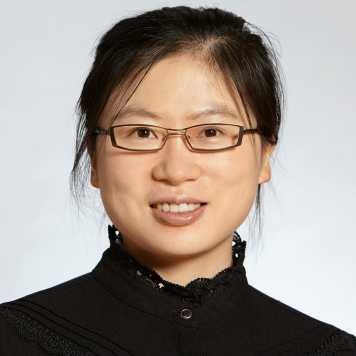
Prof. Wenchao Xu, Experimental Quantum Engineering, D-PHYS
Prof. Wenchao Xu is a tenure-track assistant professor in the Physics Department. She currently is also a group leader at Paul Scherrer Institute. Before joining ETH Zurich, she worked as a postdoctoral associate at the Massachusetts Institute of Technology between 2018 and 2022. She received her Ph.D. in physics from the University of Illinois at Urbana-Champaign in 2018. Her research interests are centered on quantum simulation, quantum computation, and quantum nonlinear optics with experimental platforms based on neutral atoms.
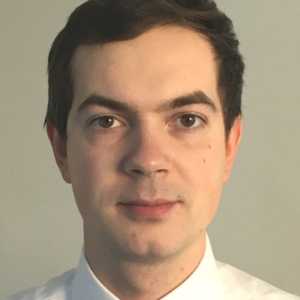
Prof. Arkadiy Simonov, Disordered Materials, D-MATL
Prof. Arkadiy Simonov is an Assistant Professor of Disordered Materials in the Department of Materials. Arkadiy Simonov’s research focuses on the generation, characterisation and control of disorder in crystalline materials. He has developed a novel method of characterising the structure of materials, which he will use to investigate the effects of electronic disorder in quantum materials. By making this appointment, the department is expanding the field of solid state physics beyond the traditional methods of crystallography and strengthening its links with research institutions such as the Paul Scherrer Institute (PSI).
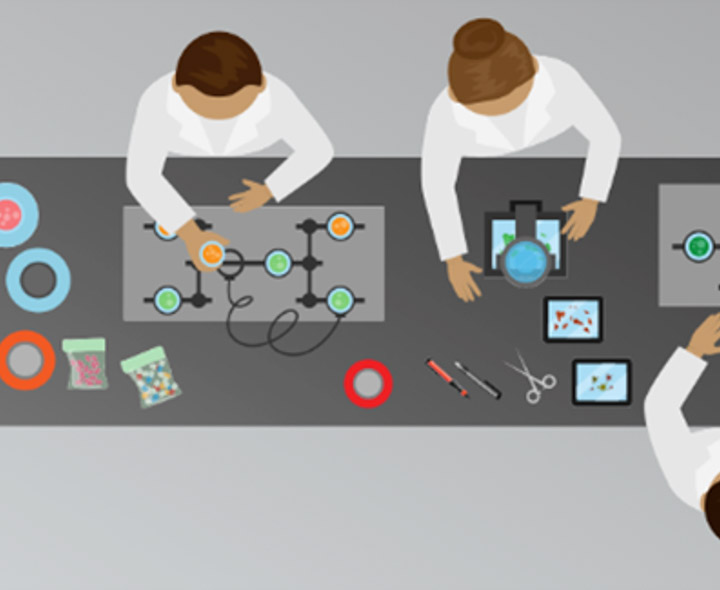
This workshop aims to show you all the tools you need to start your own academic research group. It is highly interactive and mostly based on discussions and interactive exercises.
The workshop consists of one full day of in-person training and a half-day webinar.
Content & topics
Your trainer will adapt the workshop based on your wishes and needs. It may include (a selection of) the following topics:
- How to manage your projects
- How to select your co-workers
- How to lead your team
- How to secure funding
- How to communicate your research
- How to master the Faculty interview
Your trainer
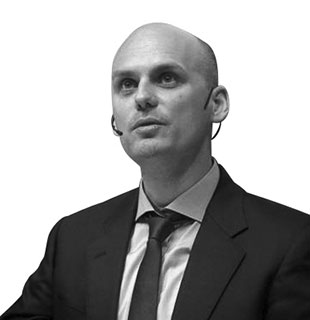
Prof. Dr. Max von Delius (PhD) is a W3 Professor for Organic Chemistry at the University of Ulm. He´s a highly successful group leader since 2013. He received funding from the Emmy-Noether programme of the DFG as well as an ERC starting grant. His research interests encompass the synthesis of functional organic materials and the investigation of complex chemical networks. As young professor (born 1982), he´s aware of all the challenges that young group leaders in the natural sciences face and addresses these in an interactive setting.
Dates & Location
- Thursday, 29.02.2024 | 9.00-17.00 | ETH Zentrum
- Thursday, 14.03.2024 | 9.00-12.30 | online
The course is for postdocs and senior scientists from MaP member groups only. It is fully booked (15 people).
If the feedback from the participants is positive, MaP may offer it again at a later date.
For this workshop, MaP collaborates with naturalscience.careers.
Applying for ETH and SNSF grants – tips and tricks from fellow postdocs
5 September 2023, 12.00-14.00 | ETH Hönggerberg, HCI J 498
SNSF Ambizione Grant, SNSF Swiss Postdoctoral Fellowship, ETH Zurich Postdoctoral Fellowship, … Applying for funding grants can be very bureaucratic and unnerving. MaP asked three ETH postdocs to talk about their experience with the application procedure and the interview. They shared tips and tricks and answered questions.
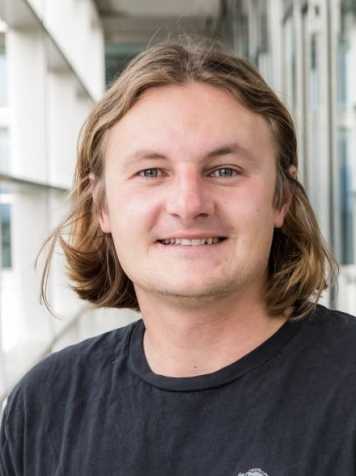
Dr. Tanner Jankins received his PhD from the Scripps Research Institute in 2022. He received the SNSF Swiss National Science Foundation Postdoctoral Fellowship in July 2023. His research focuses on reversible catalytic reactions for chemical waste valorization at the Department of Chemistry (D-CHAB), where he works under Prof. Bill Morandi. He is currently applying for independent positions in the USA and Europe.
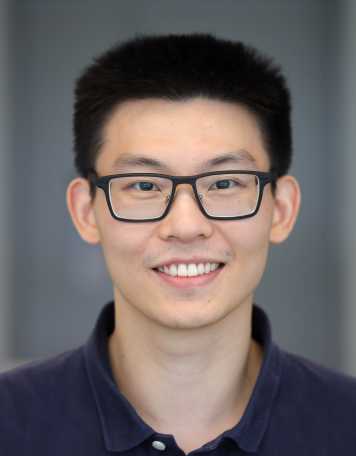
Dr. Minghan Hu recently received the SNSF Swiss National Science Foundation Ambizione grant. He will focus his future research on microrobots at the Department of Mechanical and Process Engineering (D-MAVT), where he will soon start his own junior group under Prof. Brad Nelson & Prof. Salvador Pané i Vidal. Until July 2023, he was a postdoc in Prof. Lucio Isa’s group (Soft Materials and Interfaces).
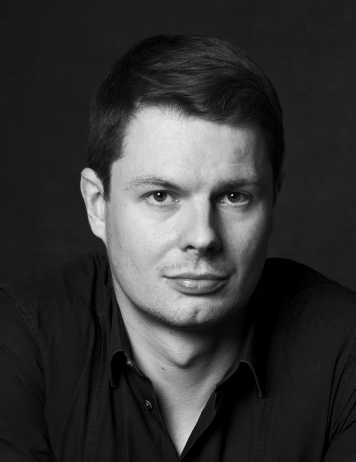
Dr. Alexander Henkes received his PhD from the Technical University of Braunschweig in October 2022. He received the ETH Postdoctoral Fellowship in 2023, starting in September. His research focuses on artificial neural networks and neuromorphic computing for physical simulations at the Department of Mechanical and Process Engineering (D-MAVT), where he works under Prof. Dr. Laura De Lorenzis.
A recap and some pictures can be found in the event news article.